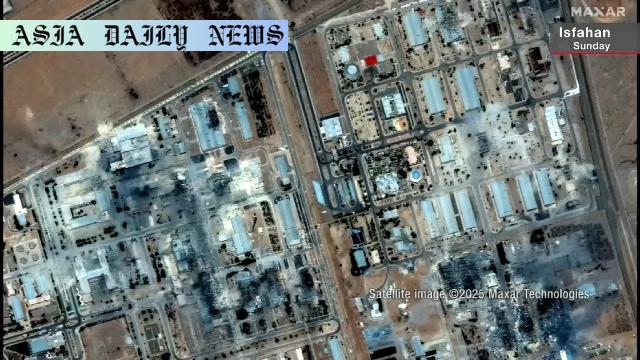Iran nuclear program: CIA chief claims US airstrikes have ‘severely damaged’ Iranian nuclear facilities, delaying progress for years.

US Strikes Severely Impact Iran’s Nuclear Program
The recent escalation in US-Iran tensions has shifted significantly with the latest revelation by CIA Director John Ratcliffe. Ratcliffe announced that “credible intelligence” indicates that US airstrikes have inflicted severe damage on key Iranian nuclear facilities. The intelligence, sourced from historically reliable methods, suggests that the damage is significant enough to delay Iran’s nuclear capabilities for years. The airstrikes, carried out as part of an aggressive US policy towards containing Iran’s nuclear ambitions, seem to have targeted vital infrastructure integral to uranium enrichment and nuclear development.
Despite this claim, some media outlets, including CNN, have suggested that the assessment might be overly optimistic. These outlets point out that early intelligence suggests the strikes, while damaging, may not have reached the core components of the program. This divergence in narratives raises questions about the accuracy of the damage estimates and the long-term consequences for global nuclear diplomacy.
Conflicting Narratives on the Effectiveness of the Strikes
US President Donald Trump has taken a more assertive stance, boldly claiming that Iran’s nuclear program has been “totally obliterated”. This declaration, however, has been met with skepticism from various defense analysts, who argue that a program as robust and concealed as Iran’s would require more than a single series of strikes to fully dismantle.
There are also broader implications for US-Iran relations and regional stability. The strikes and subsequent intelligence leaks may signal a shift in US strategy, possibly aiming to halt Iran’s progress altogether rather than simply delaying it. Iran has yet to release a comprehensive statement addressing the alleged damage or its potential plans for rebuilding its nuclear program.
Implications for the Global Community
The alleged damage to Iran’s nuclear infrastructure raises concerns about the broader implications for the global community. If these claims are substantiated, they could delay Iran’s nuclear ambitions significantly. This would be a victory for those opposed to nuclear proliferation, particularly in the Middle East, which already faces political and security concerns.
However, skeptics argue that if the program has only been set back by a few months, as CNN reports, the strikes may have only served to exacerbate tensions while achieving little in terms of long-term gains. Furthermore, the strikes risk alienating US allies in regions that prefer diplomatic engagement over military action.
A Path Forward?
International experts are now speculating about the potential ripple effects of this incident. Countries in the Middle East, Europe, and Asia are closely monitoring the situation to assess both the accuracy of the US claims and Iran’s potential responses. In the meantime, many are calling for renewed diplomatic efforts to bring Iran to the negotiating table with the goal of ensuring transparency and preventing further military actions that could destabilize the region.
Commentary
Assessing the Claims on Iran’s Nuclear Program
The report of severe damage to Iran’s nuclear program as a result of recent US strikes has sparked significant debate and varying interpretations. While the CIA suggests that the damage could delay progress by years, independent assessments from sources like CNN raise doubts about the extent of the damage. This divergence in narrative underscores the complexities of assessing the impact of military strikes, especially in matters as sensitive as nuclear infrastructure.
The Political Ramifications
President Trump’s assertion that Iran’s nuclear program has been ‘totally obliterated’ reflects the administration’s confident and combative stance. However, such statements may oversimplify a highly intricate situation. Iran’s nuclear program is deeply integrated into its scientific and industrial sectors, making it a challenge to fully dismantle. Moreover, these claims may strain US credibility internationally if proven incorrect, further complicating the already tense relationship between the two nations.
Global Concerns and the Need for Diplomacy
It is essential to consider the global implications of these developments. Whether or not the CIA’s assessment is accurate, the strikes have undoubtedly inflamed regional tensions. Middle Eastern nations are wary of escalations, and global powers like Russia and China may use this opportunity to strengthen their ties with Iran, challenging US influence.
This incident underscores the need for multilateral approaches to such critical issues. Rather than unilateral strikes, diplomatic engagements and international inspections under frameworks like the JCPOA could provide a more sustainable path forward. The stakes are too high for miscalculations or overly aggressive military tactics.
Looking Ahead
As the dust settles, it is vital for all parties to engage in open dialogue and rebuild trust. The path forward will require careful navigation of diplomatic channels, acknowledgment of differing perspectives, and a strong commitment to achieving consensus on preventing nuclear proliferation while stabilizing the region.


